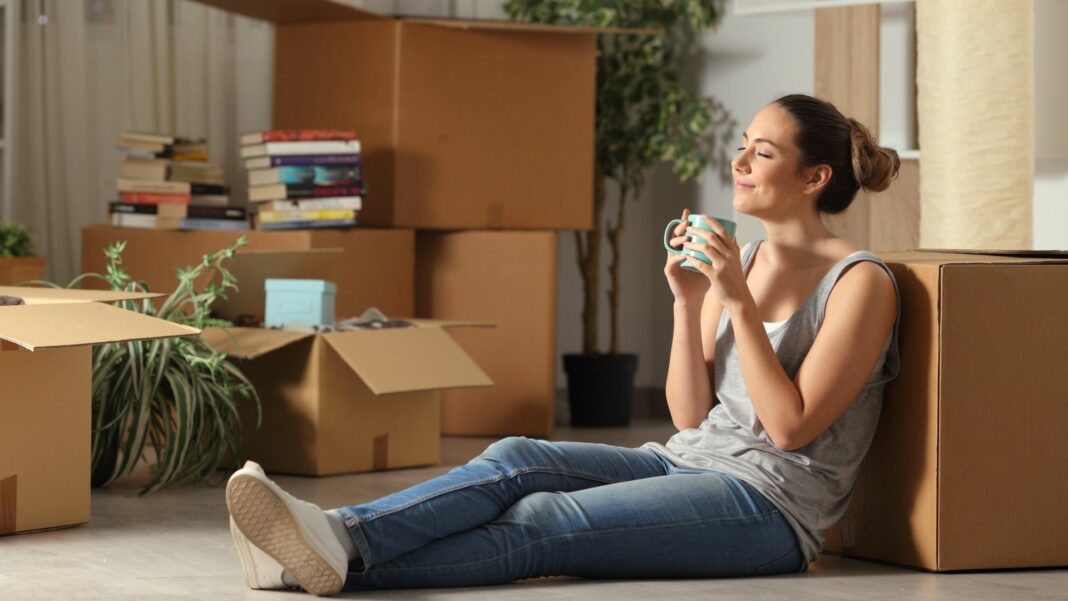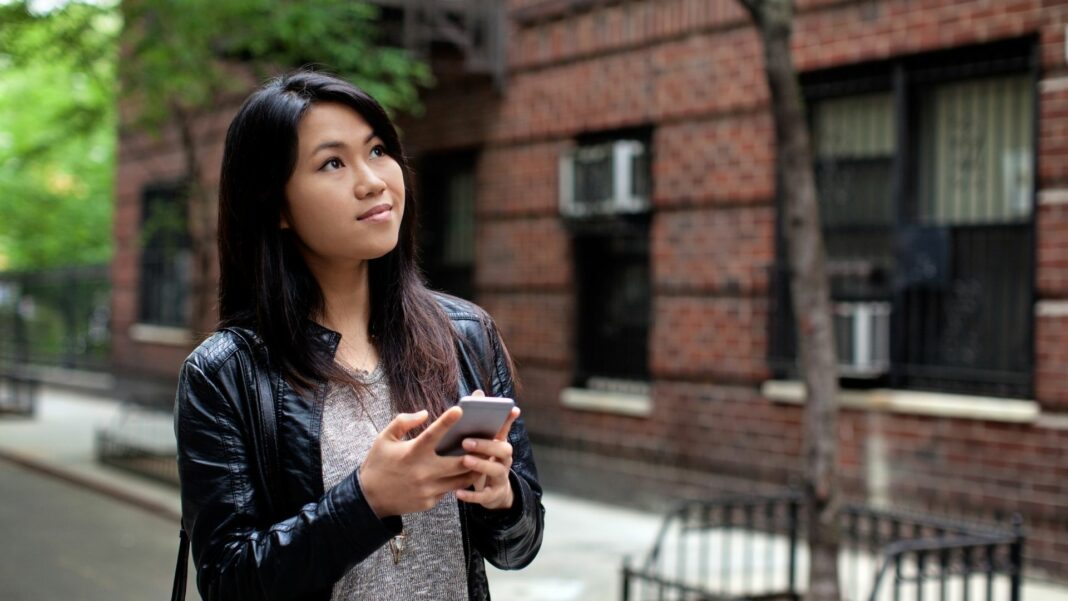
Whether you’re moving out of your parent’s house or making the jump from the college dorm room into an actual apartment, moving into your first apartment is an extremely exciting experience in your life. Making the move into your first apartment might also be your first big step into adulthood.
Searching for your first apartment, going through the application process, and beginning to budget for expenses isn’t going to be a walk in the park, but it’ll be worth it. To make this the smoothest transition possible, you’ll need a bit of guidance. We’ve put together a first apartment checklist with helpful tips for first-time renters, so read on to find out what you should keep in mind before signing a lease.
1. Identify your budget
In order to enjoy your life while you’re renting, you should make sure that you aren’t digging change out from between couch cushions every time you need to write a check to your landlord. According to the U.S. Department of Housing and Urban Development, it’s recommended that renters should not spend more than 30% of their gross monthly income on their rent.
Look around at different locations and see how the rent differs from city to city. Cities with higher average rents may require you to consider living with roommates.
2. Choose your neighborhood

Once you have your budget defined, it’s time to start scouting out the best neighborhoods for your new apartment. Do you want to live near all the action in a city, or in a more quiet neighborhood near parks and outdoor spaces? Do your research early to find which area in your city will fit your needs. Some things to consider include your commute time to work and other points of interest, proximity to shopping and retail stores, and the walkability of the area.
3. Decide if you need a roommate

If your rent is looking like it’s going to wind up costing you an arm and a leg, it’s time to start looking into getting a roommate to split the bill. But before you hop online and start the hunt for a roommate, you should take the time to reflect on what exactly you’re looking for when it comes to a housemate.
Take the time to weigh both the pros and cons of having a roommate. If you decide in favor of it, it’s time to begin the hunt. This won’t be the easiest task, as you have to make sure that you’re compatible when it comes to cleanliness, pet preference, and schedules as well as share the same ideas about having people over. These are all things to consider when entering into a roommate agreement. If you like to keep to yourself, look for a roommate who does, too. If you’re looking for a lifelong friend, be upfront when searching for a roommate so everyone is on the same page.
4. Plan your timeline
Next up on the first apartment checklist is timing. Rent prices are subject to change based on the seasons, so you can save on rent by being strategic during your search. For example, in San Francisco, renting an apartment during the winter will help you score some great deals as that is generally when prices are the lowest. This is a trend in other cities, too, since winter is generally when landlords find it the hardest to fill their vacancies. Less competition means lower prices for you.
It’s crucial that you know the best time to start looking for an apartment. If you don’t have much time to move, there’s always the option of finding a place to sublet or renting an apartment on a month-to-month basis before moving into your dream apartment. You should also keep in mind that if you’re renting with a pet it’s likely to add a little time on your search, as pet-friendly apartments are a bit harder to come by in many cities.
5. Consider amenities

When choosing the perfect first apartment, you’ll want to think about the amenities. Apartment complexes will offer varying amenities that could impact the monthly rent of your unit. Popular amenities renters look for include fitness center, in-unit washer and dryer, dishwasher, pool, outdoor space, and covered parking. Factor these amenities into your budget and narrow your apartment search to include which top amenities matter to you most.
6. Ask questions during your tours
Before you finally pull the trigger on signing a lease, make sure that you’re asking as many questions as you can in regards to the rental. You should ask about the noise levels in the apartment, which utilities you’ll be responsible for, and what will be expected of you as a renter. This is one part of the first apartment checklist that will depend on the apartment you’re interested in. Ask specific questions based on the apartment, location, and neighborhood you’re considering. This step can usually be done during your apartment tour with the landlord or property management company. Bring along a checklist of questions to ask and a pen and paper to take any notes.
7. Plan for future expenses
The first month of renting an apartment will come with its own set of large expenses, usually including a security deposit, applicable pet deposit, and any application fees. All of these expenses should be discussed before you sign the lease. The security deposit should be reimbursed at the end of your lease, but make sure to read the fine print and follow the rules so you can get your money back.
Upfront expenses are only the first part of total costs. Other things, like utilities, parking, internet, and your renters insurance policy usually come with monthly payments. While some apartments include utilities and parking in the monthly rent, it’s important to make sure which additional fees you are expected to pay.
8. Complete the paperwork
Most landlords and property managers will require a fair amount of “paperwork” for your rental application, including documentation of your rental history, proof of monthly income, your credit score for credit checks, and any past landlord or personal references. Getting these items together can take some time, so once you start your apartment search you’ll want to gather your paperwork ahead of time, too.
9. Gather the essentials you’ll need for you first apartment
When renting your first apartment, one of the most important things you’ll need to do is to furnish it. Unless you’re renting a furnished apartment, you’ll likely be starting from scratch. Create a check list of essentials you’ll need so that you can shop ahead of time and plan around your budget. Here is a checklist of items to gather for your first apartment:
Living room:
- Sofa
- Coffee table
- End tables
- TV and console table
- Curtains
- Rug
- Lamps
- Decor
Bedroom:
- Bed frame, box spring, and mattress
- Sheets
- Pillows
- Comforter and blankets
- Nightstand
- Curtains
- Dresser
- Hangers
- Laundry hamper
- Shoe rack
- Mirror
Bathroom:
- Toiletries
- Toiletpaper
- Towels
- Hand soap and dispenser
- Bathmat
- Shower curtain
- Shower caddy
- Trash bin
- Plunger
- Toilet brush
Kitchen and dining room:
- Kitchen/dining table and chairs
- Pots and pans
- Dish ware
- Drinking glasses
- Coffee mugs
- Coffee maker
- Utensils
- Oven mitts
- Dish rags
- Dish soap and sponges
- Baking trays
- Measuring cups
- Tupperware
- Dish drying rack
- Paper towels
- Paper towel holder
- Aluminum foil and saran wrap
- Trash bin and trash bags
- Miscellaneous appliances (blender, crockpot, mixer)
Miscellaneous household items:
- Vacuum
- Broom and dust pan
- Mop and bucket
- Household cleaners (glass cleaner, wood cleaner, floor cleaner)
- Extension cords
- Iron and ironing board
- Wifi router
- Desk and desk chair
- Air mattress for guests
10. Plan your move

Now that your lease is signed and you’ve shopped for your new apartment, it’s time to plan your move. Decide if you are going to rent a moving truck or hire movers. If you have a team of helpers, make sure they have all of the information for getting to your new apartment. Consider renting equipment that will make moving furniture easier like a dolly, and moving blankets to cover any wood furniture. While hiring movers can be more expensive than moving yourself, it’s less physical strain and and a quicker process. If your budget allows, professional movers can optimize your move. Organize your move by going through your personal items and donating or selling any unwanted furniture or clothes. Use this as an opportunity for a fresh start. Make sure to label all of your boxes to make unpacking your space simple and effective.
11. Clean your new apartment prior to moving in
Once you’ve found your perfect place, it’s time to move in. Prior to move-in day, make sure you’ve done a full inspection of the apartment and spoken to your landlord about any pre-existing damages, marks on walls, or broken appliances. Take advantage of the empty apartment to complete a full pre move cleaning of your space. Once you’ve cleaned out any remnants of the prior tenant, you’ll be able to begin your fresh start.
Frequently asked questions for first time apartment renters
What will be required for completing my apartment application?
Typically, landlords and property managers will ask for your rental history, proof of monthly income, references, and your social security information to run a credit or background check. If you’re unsure of what documents to have prepared, give the landlord or property management company a call to find out exactly what is required.
What are rental scams and how do I avoid them?
Rental scams are listings that try to take advantage of prospective renters. When searching for your first apartment, it’s imperative that you make sure you are searching for verified listings. Don’t ever provide your personal information such as your social security number or bank account number without touring the unit and verifying that the landlord or property management company is legitimate. For more information on rental scams check out our guide on common rental scams and how to avoid them.
Do I have to pay for utilities?
The answer to this question will depend on your apartment complex and landlord. Tenants may be responsible for some utilities such as internet and electric, but will include gas and water in your monthly rent amount. Include this on question on your list when touring potential units. There are pros and cons to having utilities included, such as not having access to the thermostat.
How much should I spend on rent?
The best rule for determining how much you can afford on rent is the 30% rule, which states that a renter should spend no more than 30% of monthly income on the cost of rent. To help you identify how much rent you can afford, it’s best to use a rent calculator so that you can have an accurate idea of what price range you are working with.
Renting your first apartment is a big step, but this first apartment checklist should help. Ready to begin your search? Check out thousands of apartments for rent on Zumper and find the right one for you.
The post Renting Your First Apartment Checklist appeared first on The Zumper Blog.
